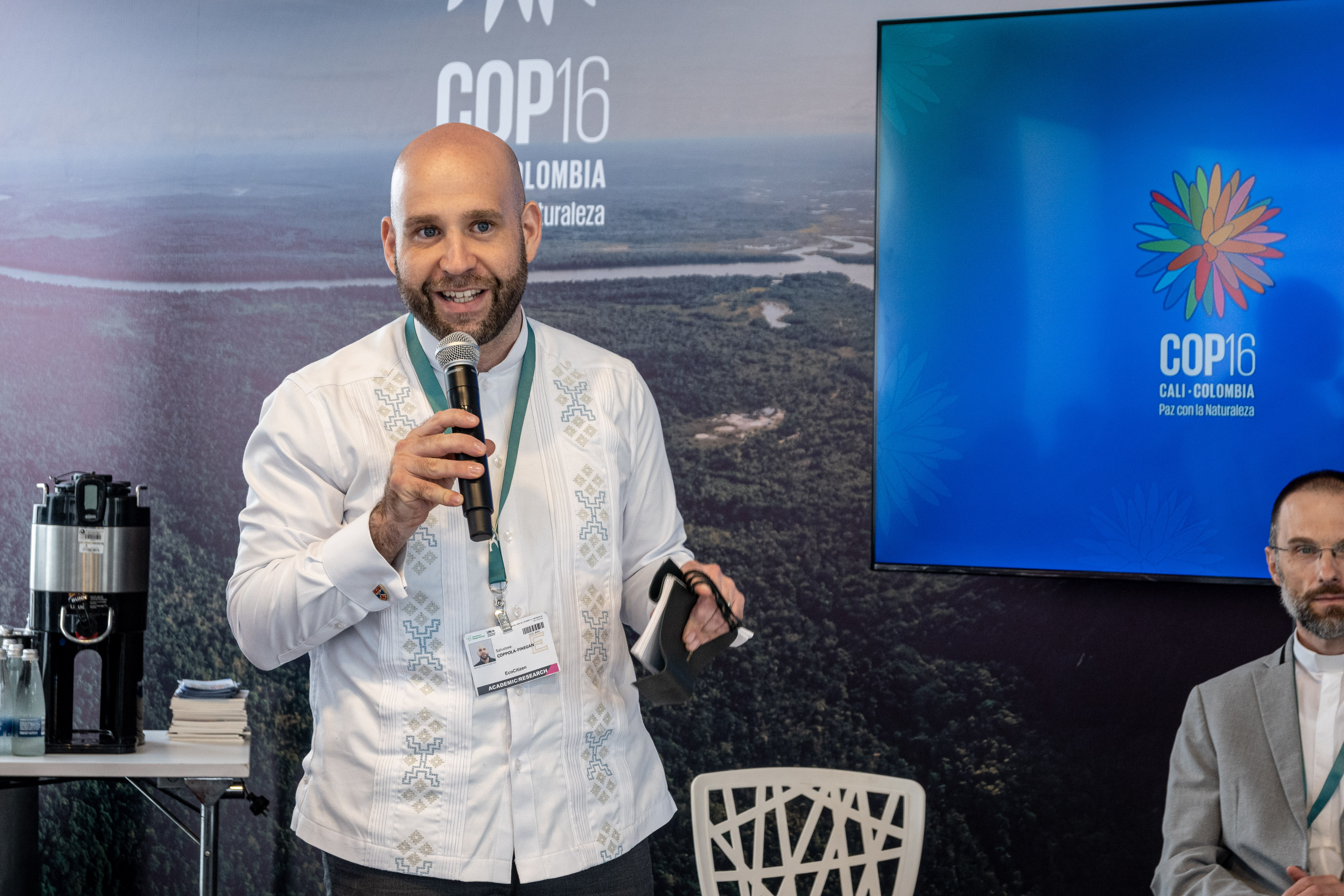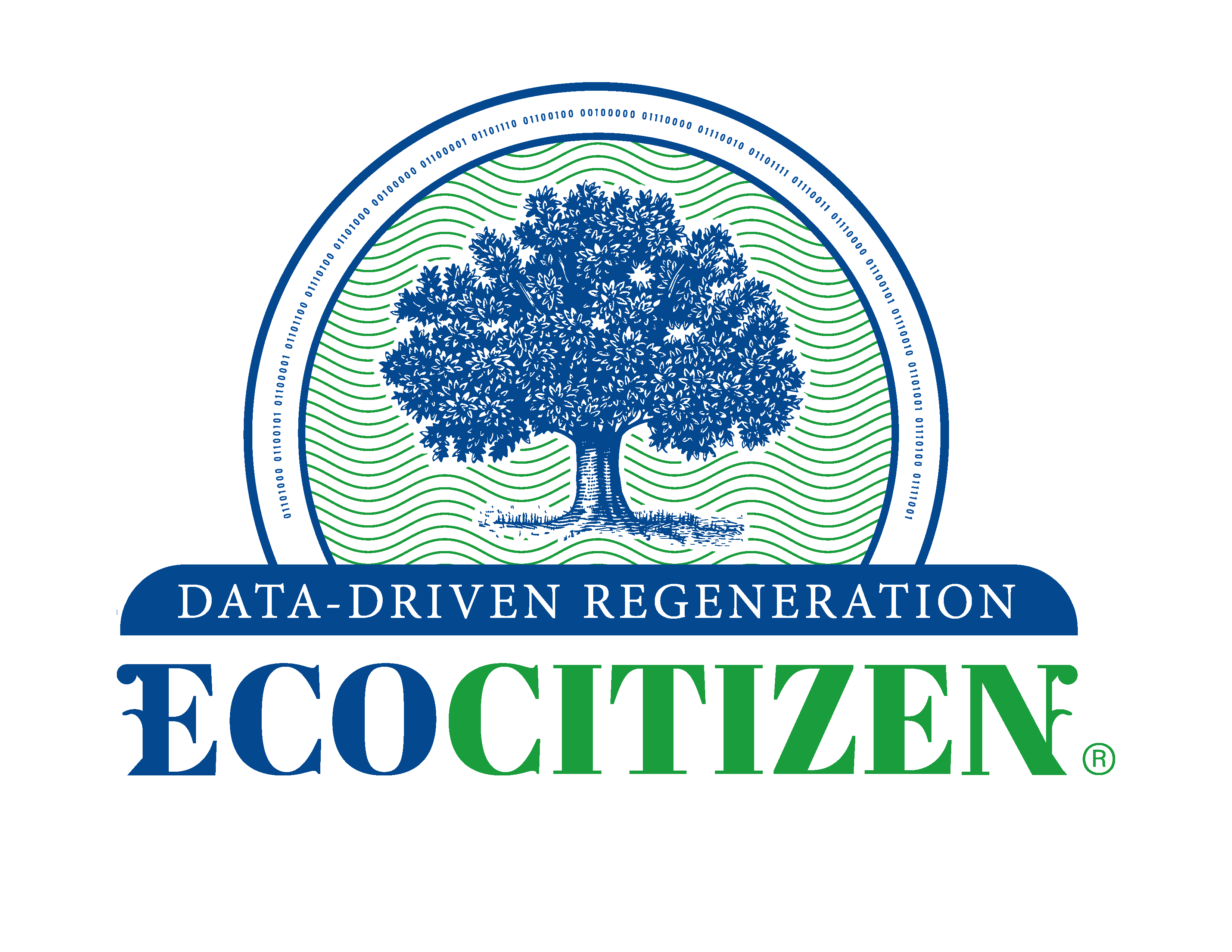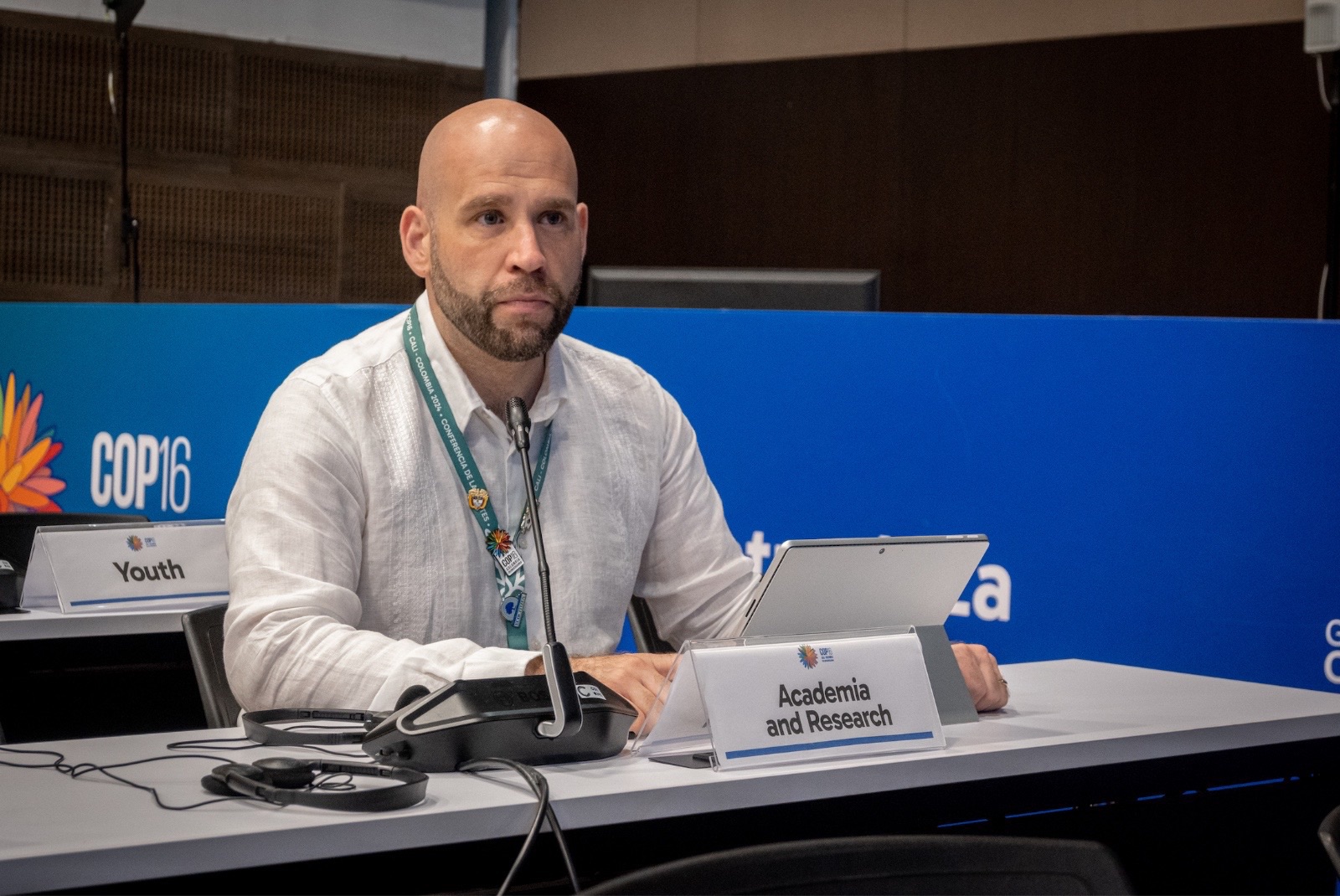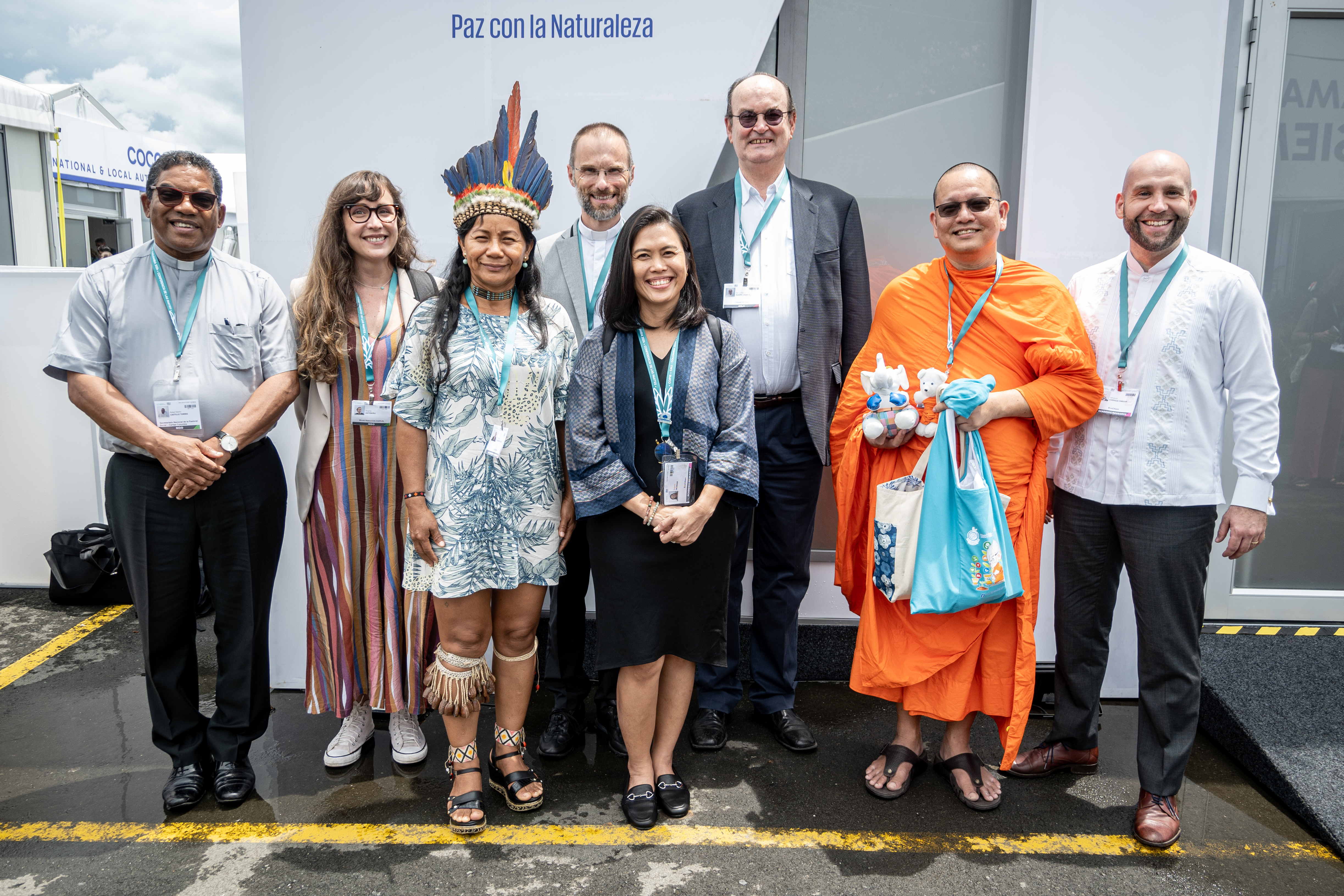
Five days into COP16 in Cali, Colombia, our work is far from over, and we are celebrating that.
As head of our delegation, Salvatore Coppola-Finegan, Chairman of Ecocitizen, has had a bust schedule of meetings and events, building key alliances for the difficult work to come. As we know, this is the decade for the implementation! Everyone (people, organizations, academia, international bodies, and decision- makers) must work together to address environmental challenges NOW.
Keeping the above in mind, we have been actively involved in the opening days of #COP16.
We believe that biodiversity protection, regeneration and climate science must be addressed from every angle. Additionally, we are convinced of the importance of a comprehensive approach that includes faith-based structures, given their important influence on both communities and at the highest political levels.
Our connections with the Xavierian Pontifical University, the Association of Universities Entrusted to the Society of Jesus in Latin America (AUSJAL), Oxford University, Ven. Napan Santibhaddo Thawornbanjob of the Institute of Buddhist Management for Happiness and Peace, CELAM, Comisión Pontificia para América Latina, Conferencia Episcopal de Colombia, Caritas Colombiana, Caritas LAC, Cáritas Internationalis, Movimiento Laudato Si, Red de Iglesias y Minería have helped us understand their needs and find a path for collaboration.
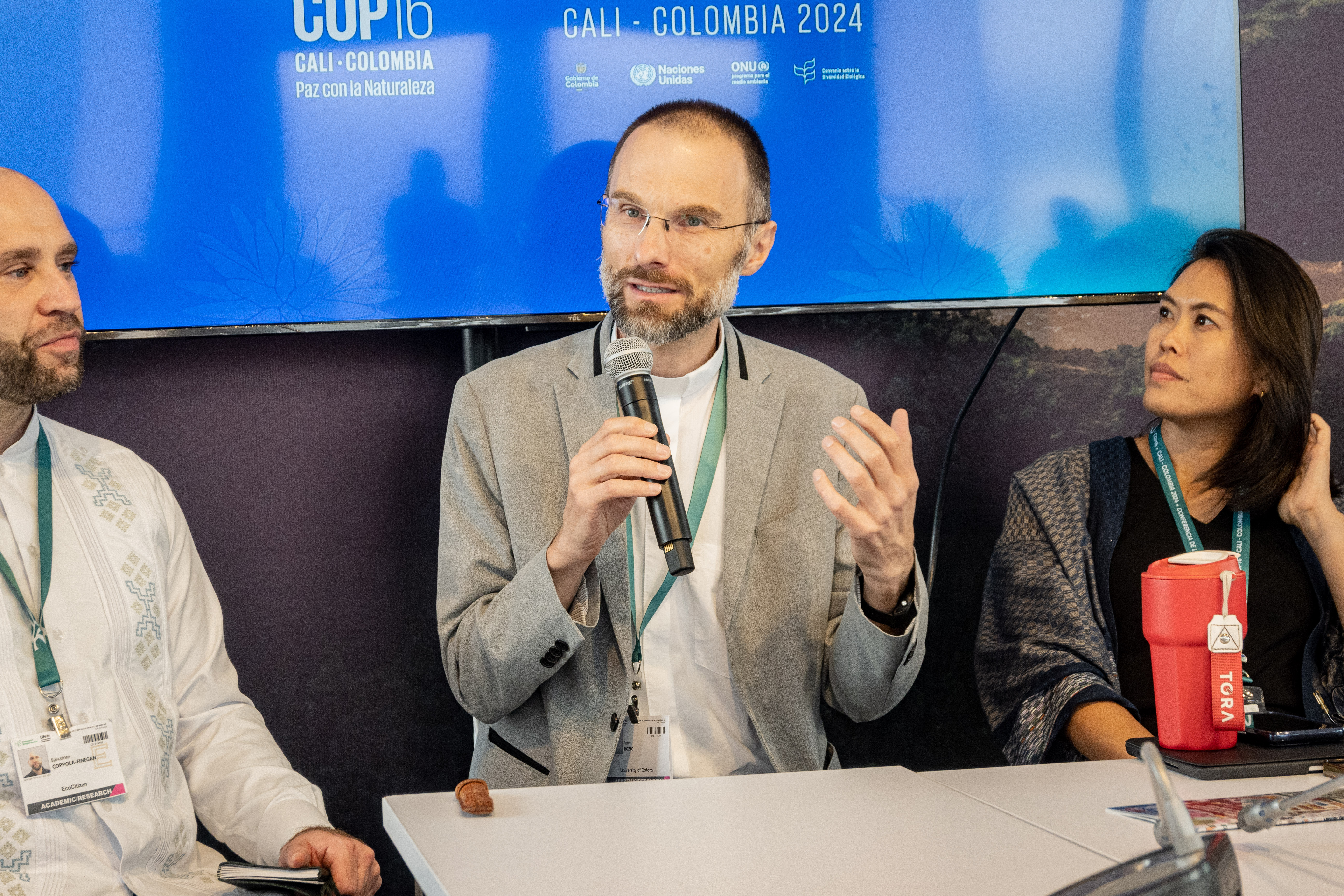

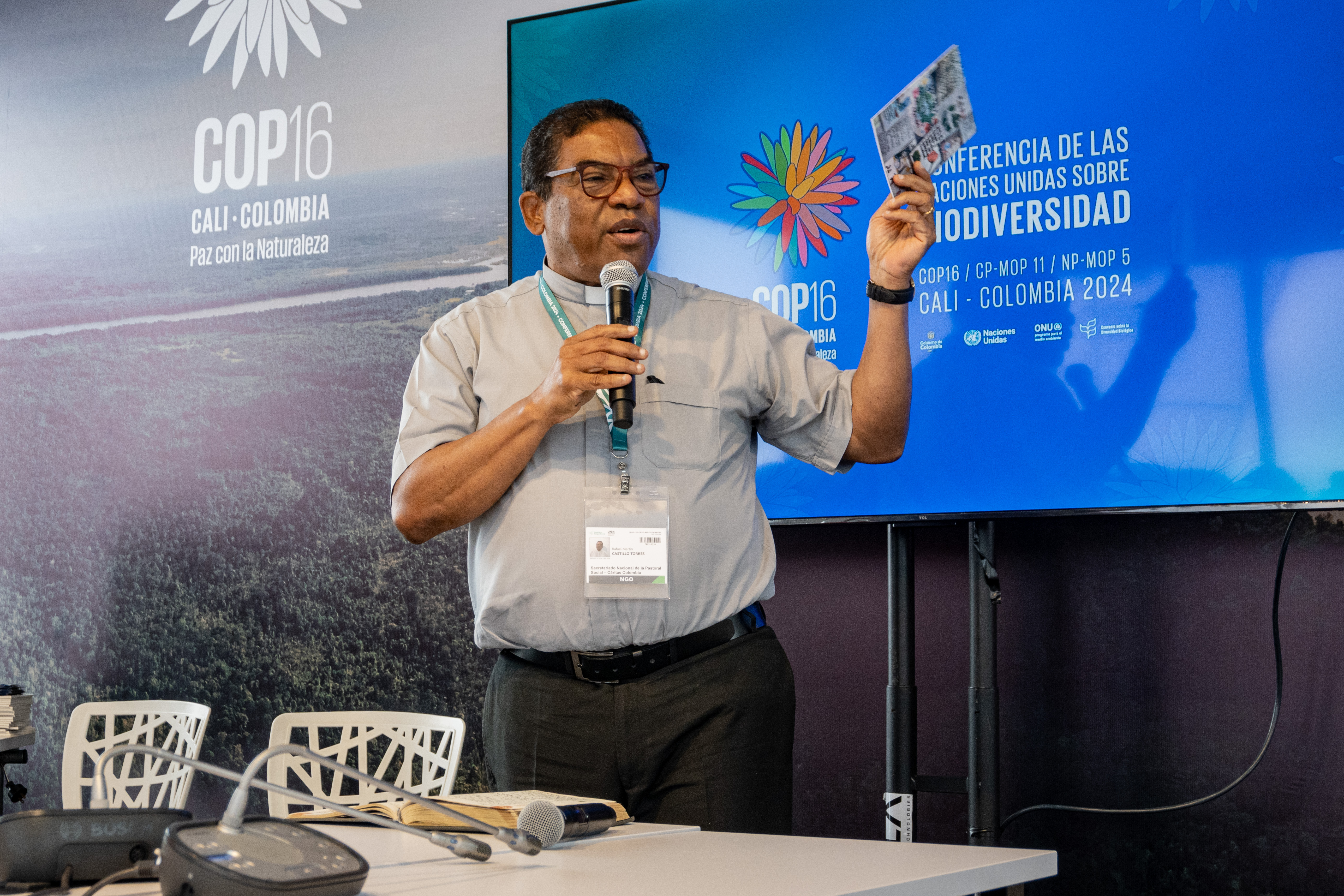

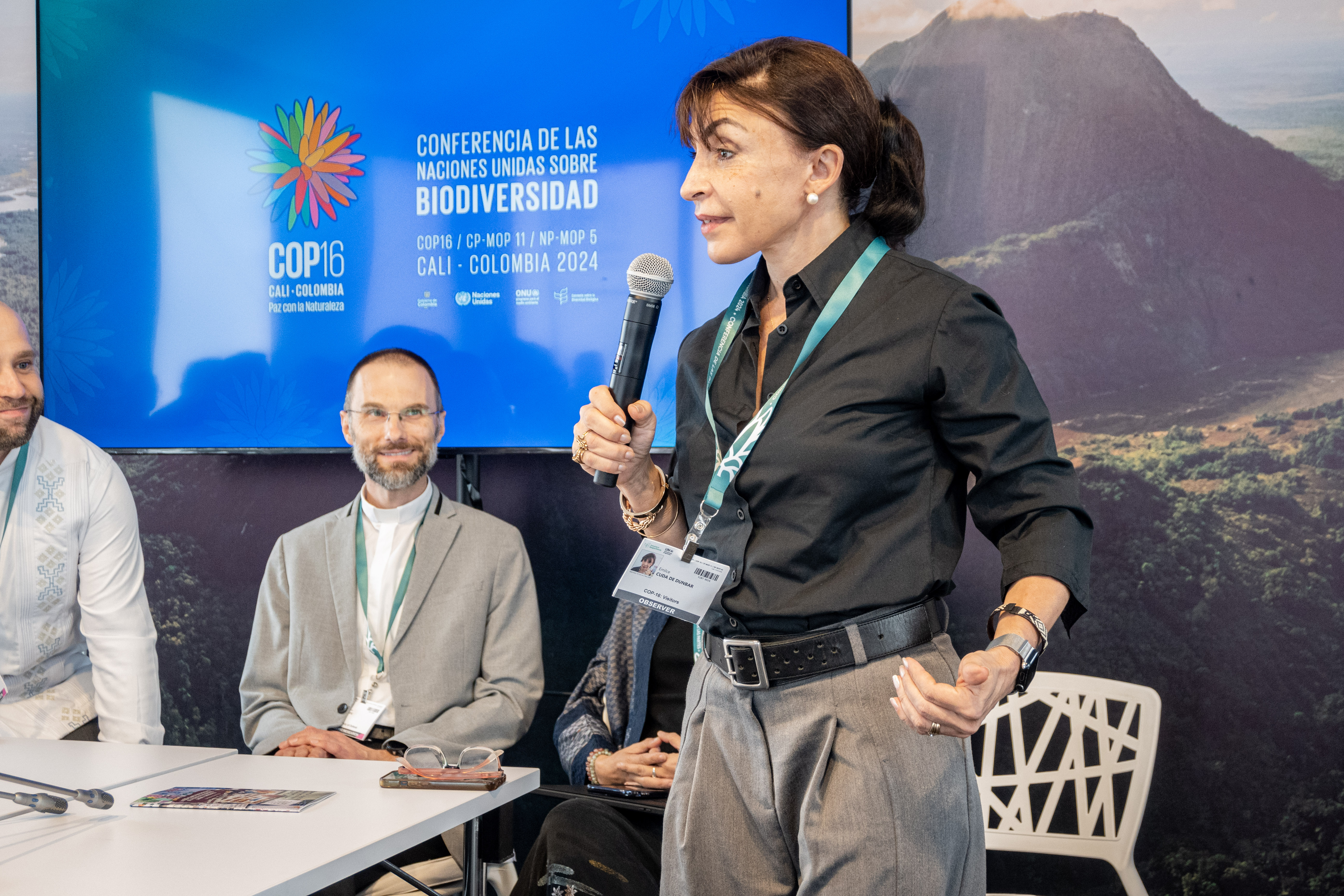

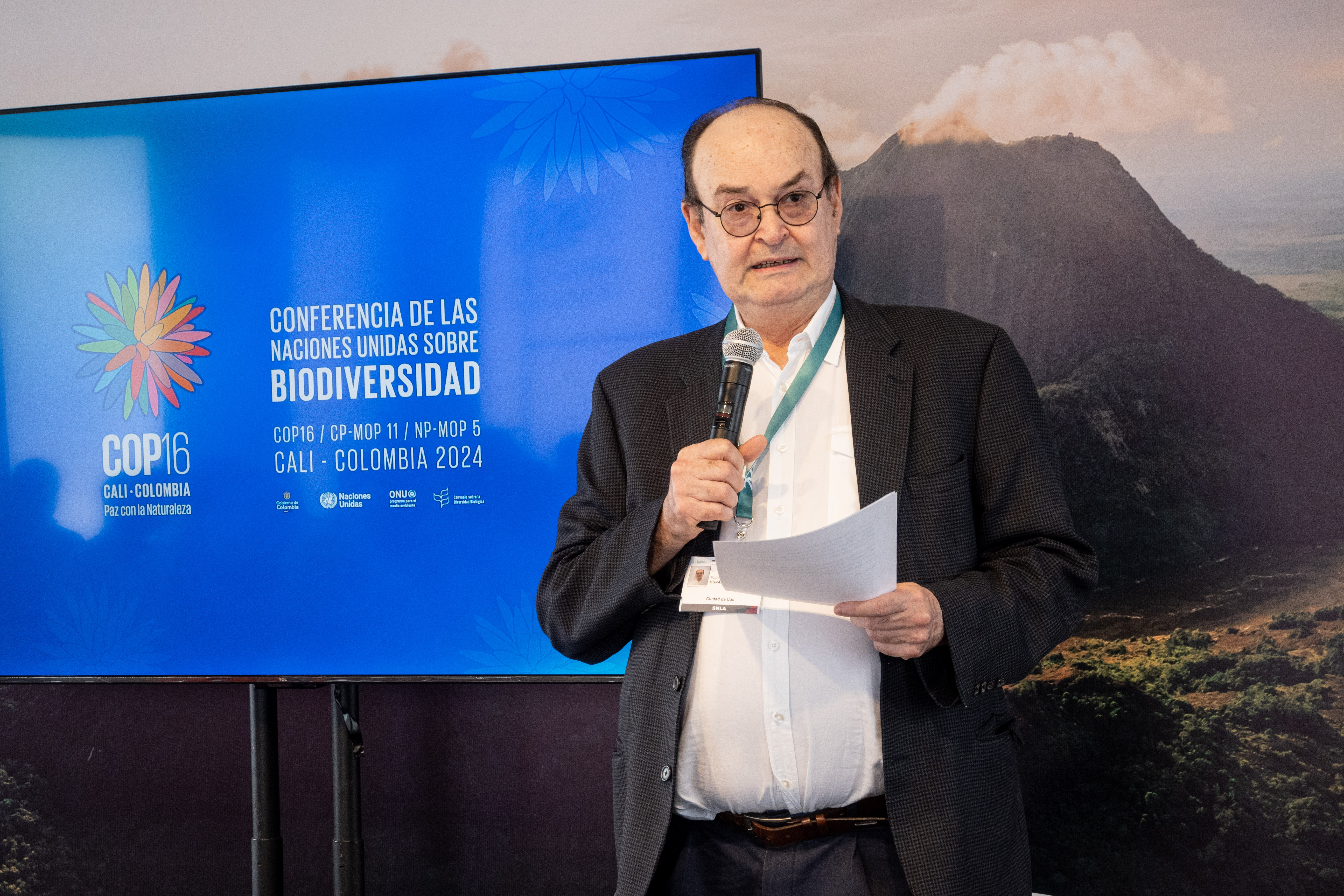

Through our work in academia and activism, we have met with experts in research and implementation, such as Virginia Antonioli from WRI Brazil and Vivi Siriporn Sriaram from the 30X30 Coalition for Nature in Thailand. Both researchers highlight that data must be accessible to everyone. They also point out that justice includes access to information “tailored” to the specific needs and characteristics of different populations.
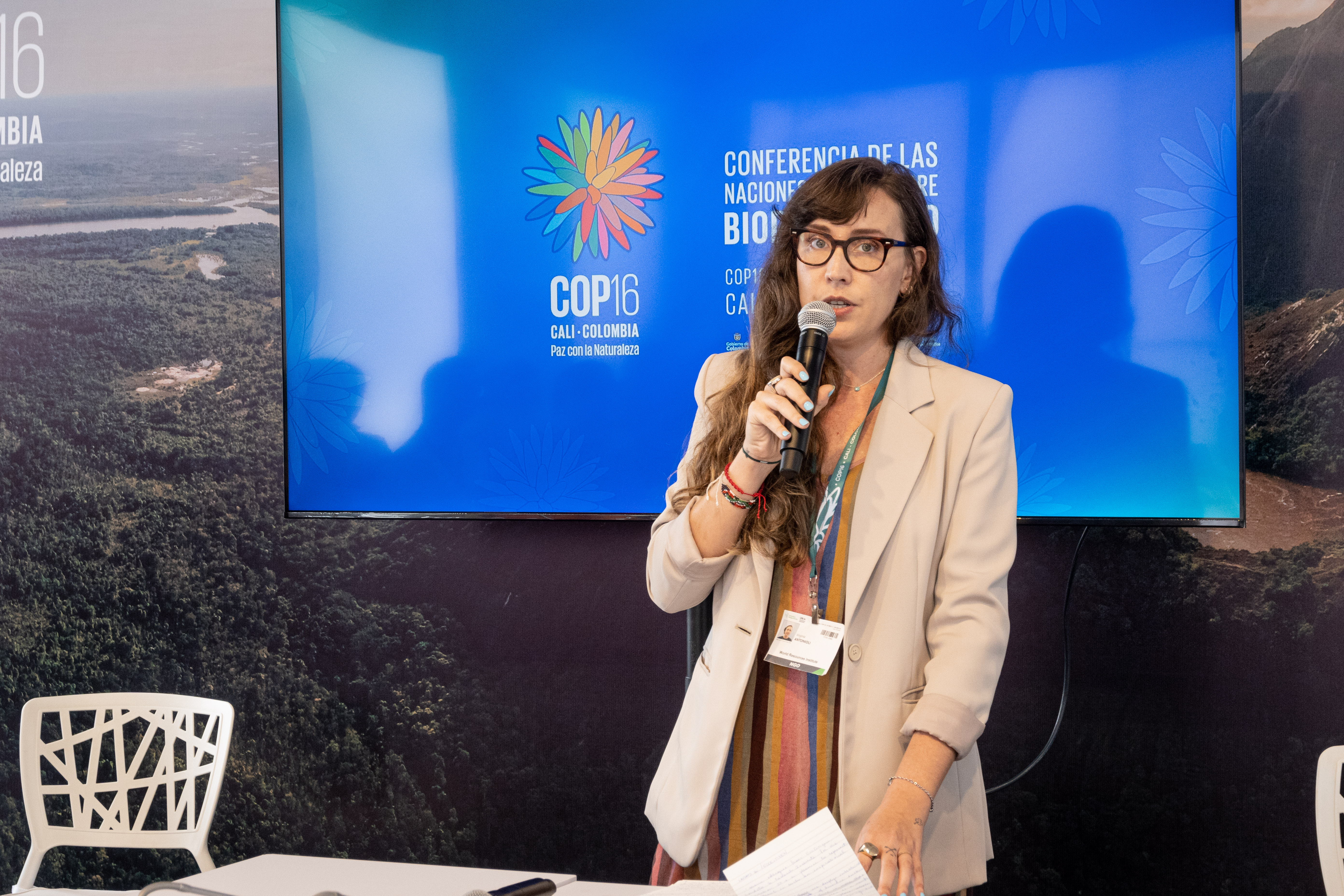

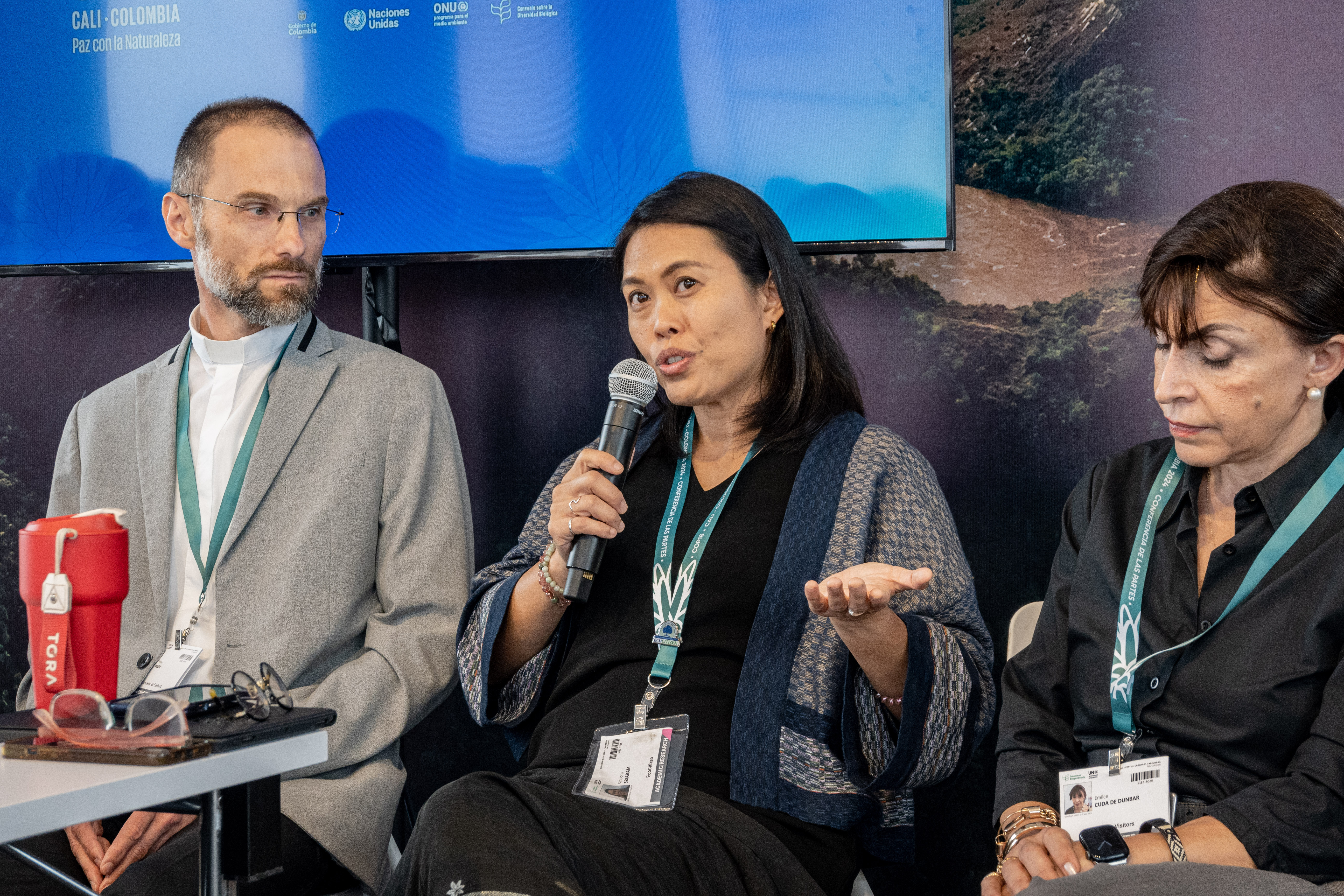

Anitalia Pijachi, the Indigenous leader and activist on our team, has consistently made us reflect each time we hear her speak. Phrases like ‘Nothing about us without us,’ ‘they still see us as a souvenir in a museum,’ and ‘indigenous communities are the natural protectors of our biodiversity’ are just a few remarks of her that call for learning and respect.
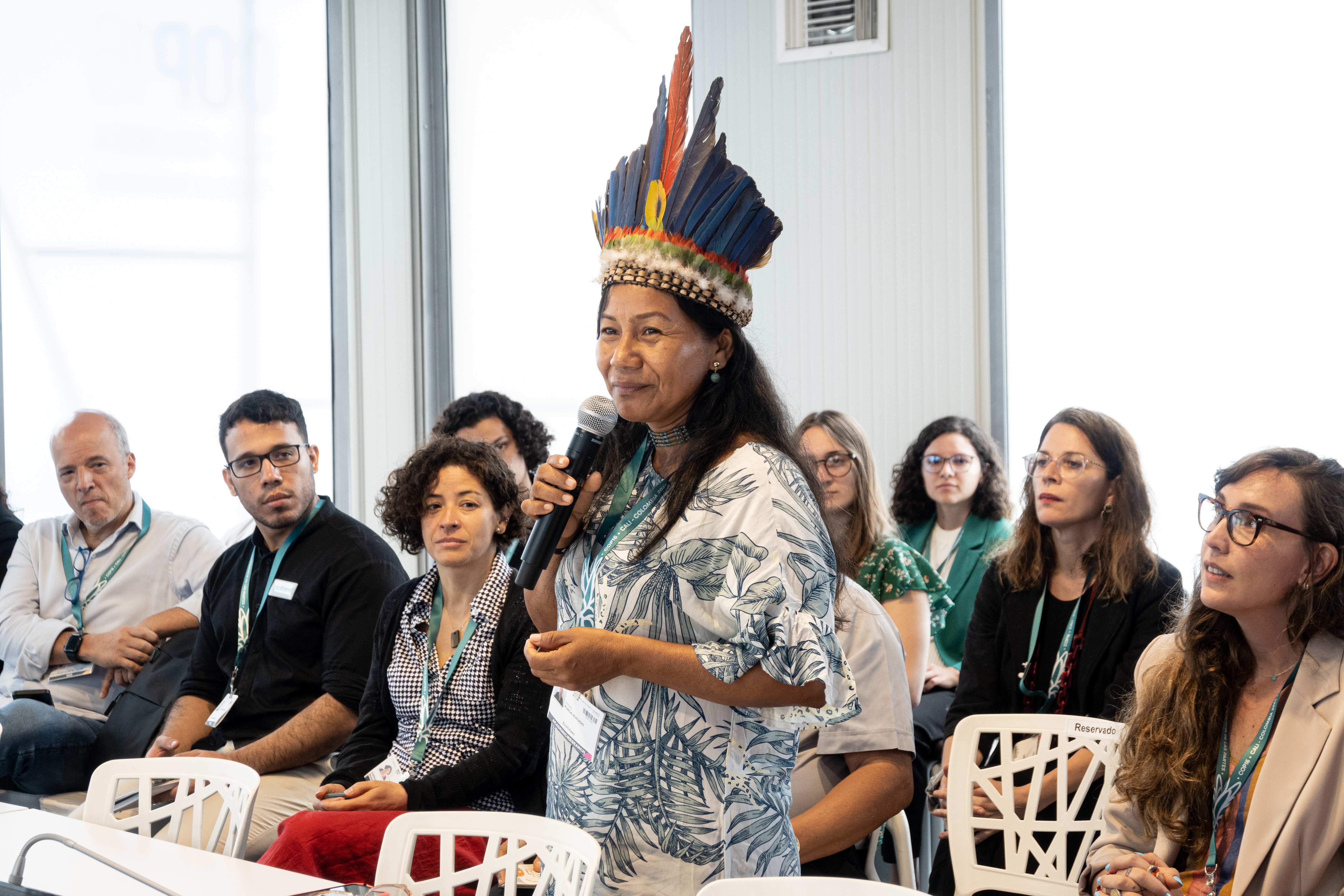

Wrapping up our first week at #COP16, we would like to share with you this insightful analysis by Salvatore Coppola-Finegan at the closing of the event, where we were co-hosts alongside Oxford University. He emphasizes the importance of Integral Ecology as the righteous path for implementing biodiversity conservation actions:
‘Integral Ecology is key to moving towards a fair technical and political framework. The convergence of Integral Ecology and the Kunming-Montreal Global Biodiversity Framework (#KMGBF) around three basic principles is evident:
- Interconnection between social and ecological systems.
- Equity and justice for marginalized communities, aligned with integrative governance.
- Sustainable development, balancing ecological health and human well-being through integrated solutions.
Both frameworks share a vision of a just and sustainable planet.’
